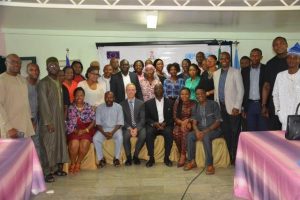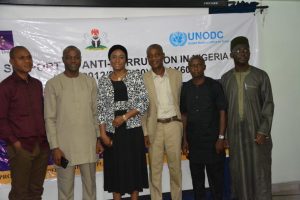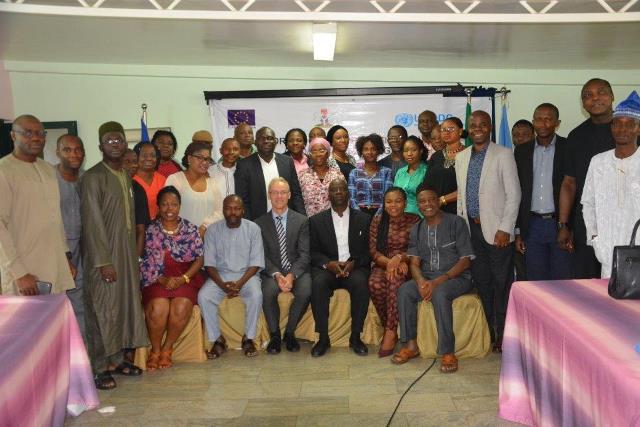UNODC annual media workshop on anti-corruption ends
● Participants urge media to avoid sensationalism while reporting anti-corruption issues

The 3-day annual annual media workshop on anti-corruption organised by the United Nations Office on Drugs and Crime (UNODC) ended today in Lagos amid calls by participants on the mass media to avoid sensationalism when reporting anti-corruption issues.
In a communique issued at the end of the workshop, the participants, made up of journalists, representatives of anti-corruption agencies such as the Economic and Financial Crimes Commission (EFCC), Independent Corrupt Practices and Other Related Offences Commission (ICPC), Code of Conduct Tribunal (CCT) and the judiciary, the participants also emphasised the need for journalists to be sensitive when reporting corruption issues in order not to glamorise crime.

While observing that the media are getting more involved in the anti-corruption crusade, the participants however noted that the nation’s anti-corruption campaign is being threatened by sensationalism of corruption news in the media, fake news/information being disseminated on the social media and inadequate flow of information from the ACAs to the media as well as inadequate attention by the media anti corruption issues.
The workshop therefore called on journalists to report evidence-based issues on corruption and also maintain their integrity and credibility by checking their facts.
“In view of the huge cost of corruption to the nation, the media, as the watchdog of the society are enjoined to help set agenda in intensifying anti corruption campaign.”
The Participants also canvassed for the establishment of specialised courts to handle corruption cases while also reiterating earlier recommendation for media houses to establish anti-corruption desks. To this end, they called on UNODC and ACAs to factor out support to encourage the nedia houses in achieving this objective. Also, the participants emphasised the need for both the media and ACAs to collaborate with the National Orientation Agency (NOA) to inform and educate the public on corruption issues.


